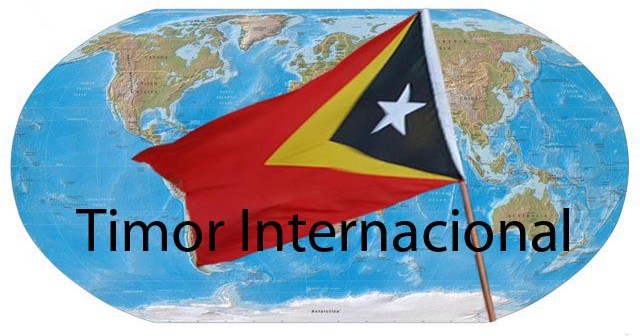It is very easy to say bad things about a living person, no matter how much we love or hate them. But immediately after the person dies, the bad things disappear and memories of the good things suddenly emerge. Unfortunately the dead person no longer has the chance to hear the loving choir.
When we heard of the death of former Indonesian foreign minister Ali Alatas -- affectionately known as Alex -- a colleague spoke about the aforementioned tendency. But Alatas often heard symphonies of adoration about his achievements as a diplomat from many people in the world during his life.
Journalists, including myself, who covered his actions during his 11-and-a-half-year ministerial tenure, definitely also played the pleasant music for him. The internationally respected diplomat and statesman won our and the media's hearts and mind.
However, I strongly criticized him once when he launched his book, A Voice for a Just Peace, in December 2001. I told him that he had practically ignored Soeharto and had not included a photo of himself with his former boss in the book. It was disappointing for me, because Soeharto deserves major credit for Alatas' success story.
One of the funnier memories I have of him is of a moment that occurred several years ago. At the time, although he was irritated, Alatas tried to remain calm when answering questions set to him by Michael Vatikiotis, the Jakarta correspondent of the weekly Far Eastern Economic Review, who persistently questioned him about human rights abuses in Indonesia's colony -- according to the UN standard -- East Timor.
Alatas gave lengthy answers, much to the boredom of the other journalists attending his weekly press briefing at the Foreign Ministry.
Alatas then turned his attention to one of the tape recorders being waved under his nose by the journalists. The machine was making an obnoxious "tic, tac" sound. It was my tape recorder.
"What is going on with that tape?" Alatas asked.
"The tape was designed to record only valuable remarks," I joked.
He laughed, realizing that he had been talking too much. And to the relief of the other reporters, Alatas stopped "preaching" at Vatikiotis.
No doubt, some of the most frequent and irritating questions put to him by reporters during his tenure as Indonesian foreign minister, which expired in September 1999, had to do with East Timor.
Other Indonesian diplomats were also tasked with -- according to current Foreign Minister Hassan Wirayuda -- telling "the truth but not the whole truth" about East Timor.
And the most painful period for him as Indonesia's chief diplomat was likely when he served then president B.J. Habibie's short-lived government from May 1998 to September 1999.
Not just because he had to compete with Habibie's advisor Dewi Fortuna Anwar, who was playing the role of "de facto" foreign minister, but mostly because Habibie did not consult him before deciding to hold a referendum in East Timor in 1999.
Internationally, Alatas is probably one of -- if not the most -- successful and respected Indonesian career diplomats in the country's history, thanks in part to the great deal of trust imparted on him by president Soeharto during the 10 years they worked together.
All of Soeharto's succeeding four presidents, including Susilo Bambang Yudhoyono, depended on him as their foreign affairs advisor.
His successor, Hassan Wirayuda, is a very eloquent diplomat, but Hassan lacks the charisma and the strong public relations capacity that allowed Alatas to build such a health rapport with the media as well as his international counterparts.
Among the incumbent leaders of the 10-member Association of Southeast Asian Nations, Cambodian Prime Minister Hun Sen spent the most time working with Alatas.
Alatas worked very hard for years to help encourage Cambodian warring parties to agree to a peace agreement.
Vietnam installed Hun Sen as its prime minister after it invaded Cambodia in 1978. The Paris International Conference was held in October 1991, but Indonesia had to share the glory with France, which joined in the final stages of the peace negotiations.
In contrast to his predecessor, Mochtar Kusumaatmadja, who often clashed with Indonesian generals, especially military chief Gen. Benny Moerdani, on several issues, especially East Timor and Cambodia, Alatas was more flexible and persuasive.
At the time of the Cambodian invasion, Indonesia's and Vietnam's armed forces were working together closely as the two countries attempted to counter China's growing influence on the region. Indonesia reopened its international relations with China in 1990 after 25 years of tense silence.
Soeharto enjoyed some glorious moments at various international forums, including when Indonesia successfully hosted the Non-Aligned Movement Summit in 1991 and the Asia Pacific Economic Cooperation summit in 1994. Human rights abuses by the military continued in East Timor and in many other parts of this country, but because Indonesia's economy was peaking in the 1990s before collapsing in 1998, the international community tended to ignore Soeharto's grave economic mismanagements.
Alatas was lucky, Soeharto concentrated most of his time on domestic affairs, although he also enjoyed international appearances, declaring himself the "champion" of developing countries.
The Foreign Ministry has produced many brilliant diplomats, including minister Hassan. But it will be very difficult to find a diplomat as charismatic and capable as Alatas.
Source: The Jakarta Post




